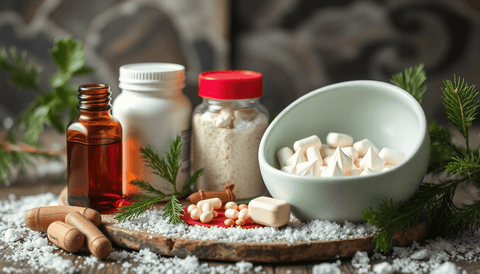Can Supplements Help Prevent Colds? What Research Says
Every year, millions suffer from the common cold. This mild but annoying illness spreads easily, causing runny noses, sore throats, and fatigue. For many, having to deal with colds can disrupt daily life and work. Because of this, there’s growing interest in cold prevention supplements — products designed to help the body resist or reduce the symptoms of colds.
But do these supplements really work? This article digs into the research to give you a clear picture of how supplements can play a role in preventing colds and boosting your immune system.
Understanding the Common Cold
At its core, the common cold is caused by viruses, with rhinoviruses being the most common culprit. When these viruses enter the body, the immune system reacts to fight off the infection. Symptoms like sneezing, coughing, and congestion occur as part of this defense.
The immune system works through various cells and molecules aiming to kill or stop the viruses. The speed and strength of this response can determine how sick you feel and how long symptoms last.
What Are Cold Prevention Supplements?
Cold prevention supplements are natural or synthetic vitamins, minerals, probiotics, or herbs taken to support the immune system. Their goal is to reduce the risk of catching colds or lessen their severity.
Popular immune boosters for colds include vitamin C, zinc, vitamin D, and probiotics. People also turn to herbal remedies like echinacea, but our focus here is on supplements backed by solid scientific evidence.
Key Immune System Boosters Backed by Research
Vitamins and Minerals
Vitamin C is perhaps the most well-known cold prevention supplement. It supports several immune functions and acts as an antioxidant. Studies show that while it may not prevent colds for everyone, regular intake can reduce their duration and severity.
Zinc is another important mineral. Research indicates zinc lozenges taken early in the cold can shorten symptoms. Zinc supports immune responses and helps the body fight viruses more effectively.
Vitamin D is essential for immune health. Many people have low vitamin D levels, especially during winter months when colds are common. Studies suggest adequate vitamin D can reduce the chance of respiratory infections, including colds.
Probiotics
Probiotics are beneficial bacteria that help balance the gut microbiome. The gut plays a key role in immune responses, so supporting gut health can boost defenses against colds.
Several studies show that certain probiotic strains can lower the risk of respiratory infections. Individuals who take probiotics regularly often experience fewer and milder colds.
Natural Remedies for Colds vs. Supplements
Natural remedies include actions like drinking warm fluids, using honey to soothe throats, or inhaling steam. These can ease symptoms but don’t necessarily prevent colds.
Supplements go a step further by aiming to strengthen the immune system itself. For example, vitamin C or zinc taken daily might reduce your risk of catching a cold or help you recover faster.
It’s important to know when to use supplements alongside natural remedies. Supplements work best when paired with healthy habits like good sleep, balanced diet, and hand hygiene.
What Does Current Research Say About Supplements and Colds?
Recent studies and meta-analyses give a mixed but promising picture. Vitamin C seems most useful when taken as a daily preventive measure, especially in people under physical stress.
Zinc shows clear benefits if taken within 24 hours of cold symptoms starting. Vitamin D supplementation is helpful for those deficient, reducing respiratory infections.
Probiotics have growing support as immune system boosters, though the effects vary by strain and dosage.
Despite these insights, research has limitations. Studies differ in quality and methods, and individual results vary. More large-scale, standardized trials are needed to draw firm conclusions.
Choosing the Right Supplements Safely
Not all supplements are created equal. When selecting cold prevention supplements, opt for certified natural and allergen-free products to reduce risks.
Topvitamine.de offers trusted, 100% natural supplements from reputable international brands. Ensuring supplements have quality certifications guarantees you get effective and safe products.
Always consult a healthcare professional before starting any new supplement, especially if you have health conditions or take other medications.
Conclusion
Cold prevention supplements, such as vitamin C, zinc, vitamin D, and probiotics, show potential in supporting immune health and reducing the impact of colds. While they aren’t magic cures, combining these supplements with a balanced lifestyle can strengthen your body’s defenses.
Research supports their use but also highlights the need for more thorough studies. Remember, maintaining good habits like proper nutrition, hydration, and rest is key.
For anyone looking to explore cold prevention supplements, choosing quality, natural, and allergen-free options from trusted sources like Topvitamine.de is a smart step toward better health.
Stay informed, stay healthy, and let research guide your choices in supporting your immune system naturally.



